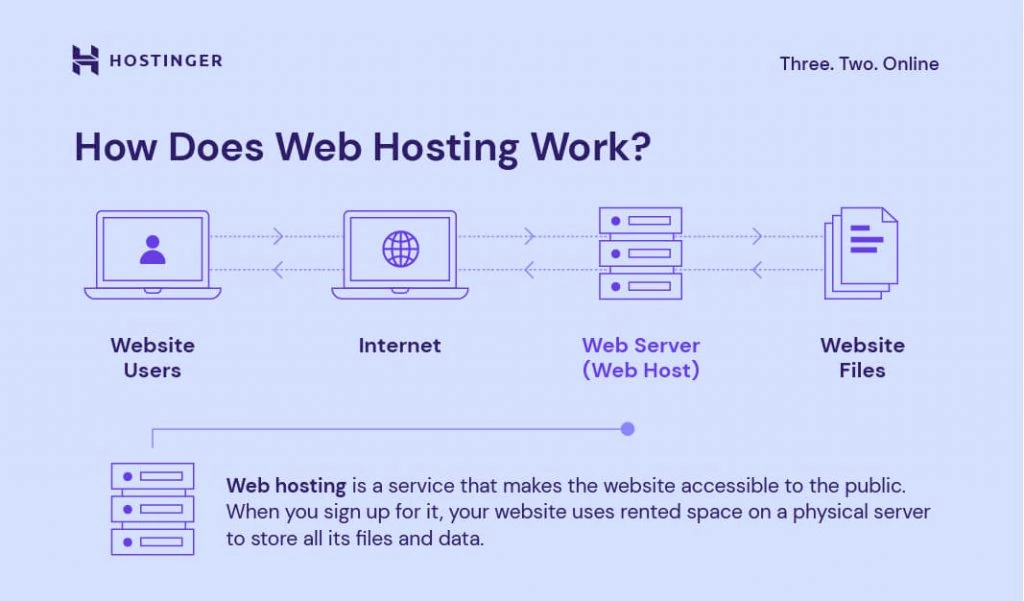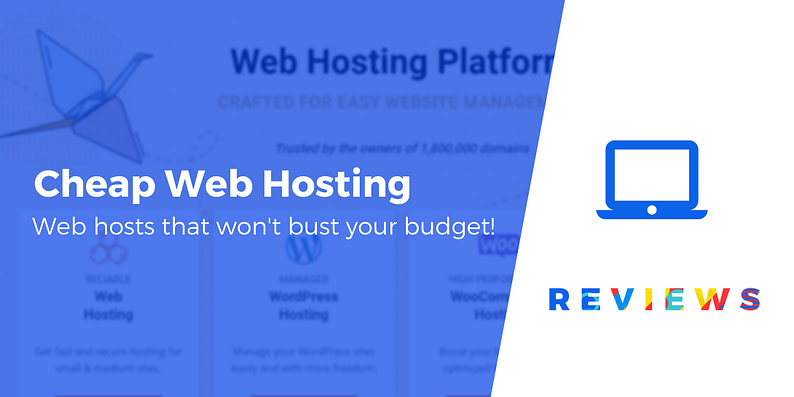Internet webhosting is the foundation of your online presence. It’s like renting a space on the internet where you can store your website’s files and make them accessible to the world. Think of it as a digital apartment building where each tenant has their own space to build their website.
Web hosting providers offer different types of services, each tailored to specific needs. You can choose from shared hosting, where you share resources with other websites, to dedicated hosting, where you have an entire server dedicated to your website. Understanding the options and their pros and cons is crucial for making the right choice for your website.
Types of Web Hosting

Choosing the right web hosting plan is crucial for your website’s success. Different hosting types cater to varying website needs, ranging from simple personal blogs to complex e-commerce platforms. Understanding the pros and cons of each type can help you select the ideal option for your website.
Shared Hosting, Internet webhosting
Shared hosting is the most affordable and accessible option, suitable for beginners and small websites with low traffic. In shared hosting, multiple websites share the same server resources, including CPU, RAM, and disk space.
- Pros:
- Cost-effective: Shared hosting plans are typically the cheapest option, making them ideal for budget-conscious users.
- Easy to use: Most shared hosting providers offer user-friendly control panels, simplifying website management.
- Suitable for beginners: Shared hosting is a good starting point for individuals with limited technical expertise.
- Cons:
- Performance limitations: Sharing resources with other websites can lead to slower loading times, especially during peak traffic hours.
- Security risks: A compromised website on the shared server can affect other websites on the same server.
- Limited resources: Shared hosting plans typically have limited storage space, bandwidth, and processing power.
Examples of websites suitable for shared hosting include personal blogs, small business websites, and simple portfolio websites.
VPS Hosting
VPS (Virtual Private Server) hosting offers a more powerful and flexible solution compared to shared hosting. A VPS emulates a dedicated server by partitioning a physical server into multiple virtual servers, each with its own operating system and resources.
- Pros:
- Enhanced performance: VPS hosting provides dedicated resources, resulting in faster loading times and improved website performance.
- Greater control: Users have more control over the server environment, including the ability to install custom software and configure settings.
- Increased security: VPS hosting offers better security compared to shared hosting, as each virtual server is isolated from others.
- Cons:
- Higher cost: VPS hosting is more expensive than shared hosting, but still relatively affordable compared to dedicated hosting.
- Technical knowledge required: Managing a VPS server requires some technical expertise, as users are responsible for server administration.
Examples of websites suitable for VPS hosting include e-commerce websites, high-traffic blogs, and websites with resource-intensive applications.
Dedicated Hosting
Dedicated hosting provides the ultimate level of control and performance, as you have an entire physical server dedicated solely to your website. This option offers maximum resources and security, making it ideal for high-traffic websites, demanding applications, and businesses with critical online presence.
- Pros:
- Unmatched performance: Dedicated hosting provides the fastest loading times and most robust performance, as your website has exclusive access to the server’s resources.
- Complete control: You have full control over the server environment, including the operating system, software, and configurations.
- Enhanced security: Dedicated hosting offers the highest level of security, as your website is isolated from other websites.
- Cons:
- Highest cost: Dedicated hosting is the most expensive option, making it suitable for businesses with significant budgets and high-demand websites.
- Technical expertise required: Managing a dedicated server requires advanced technical knowledge and skills.
Examples of websites suitable for dedicated hosting include large e-commerce platforms, high-volume online gaming websites, and government websites with critical data.
Cloud Hosting
Cloud hosting utilizes a network of interconnected servers to distribute website traffic and resources. Instead of relying on a single physical server, cloud hosting distributes data across multiple servers, providing scalability, flexibility, and high availability.
- Pros:
- Scalability: Cloud hosting allows you to easily scale your website’s resources up or down as needed, ensuring optimal performance even during traffic spikes.
- High availability: Cloud hosting ensures website uptime by distributing data across multiple servers. If one server fails, other servers take over, minimizing downtime.
- Cost-effective: Cloud hosting can be more cost-effective than dedicated hosting, as you only pay for the resources you use.
- Cons:
- Complexity: Managing cloud hosting can be more complex than traditional hosting, requiring familiarity with cloud platforms and services.
- Security concerns: Ensuring data security in a cloud environment requires careful configuration and adherence to best practices.
Examples of websites suitable for cloud hosting include large e-commerce platforms, SaaS applications, and websites with fluctuating traffic patterns.
Web Hosting Features
Web hosting features are essential components that determine the functionality and performance of your website. They provide the necessary tools and resources to build, manage, and operate your online presence. Understanding these features is crucial for choosing the right hosting plan that meets your specific needs.
Essential Web Hosting Features
| Feature | Description | Benefits |
|---|---|---|
| Domain Name | Your website’s unique address on the internet, like “example.com”. It allows users to access your website. |
|
| Email Accounts | Enables you to create and manage email addresses associated with your domain, such as “[email protected]”. |
|
| Databases | Stores and manages data for your website, such as user information, product catalogs, and website content. |
|
| Storage Space | The amount of disk space allocated for your website’s files, including images, videos, and other content. |
|
| Bandwidth | The amount of data that can be transferred to and from your website per month. |
|
| Security Features | Measures taken to protect your website and data from threats like hacking and malware. |
|
| Website Builder | A tool that allows you to create and manage your website without coding knowledge. |
|
| Customer Support | Assistance provided by your hosting provider to help you with technical issues and website management. |
|
Setting Up a Website with Web Hosting

Setting up a website with web hosting is a straightforward process that involves choosing a domain name, selecting a hosting plan, and installing website software. This guide will walk you through the steps, ensuring you have a functional website ready to share with the world.
Choosing a Domain Name
Choosing a domain name is crucial for your website’s identity and online presence. It’s your website’s address on the internet, making it easy for visitors to find you. Here are some tips for choosing a memorable and effective domain name:
- Keep it short and easy to remember.
- Use relevant s related to your website’s content.
- Avoid hyphens and numbers, unless absolutely necessary.
- Check for availability across popular domain extensions (e.g., .com, .net, .org).
- Consider brandability and long-term relevance.
Connecting a Domain Name to Hosting
Once you’ve chosen a domain name, you need to connect it to your web hosting account. This process, known as domain name registration, allows your website to be accessible online.
- Register Your Domain: You can register a domain name through a domain registrar like GoDaddy, Namecheap, or Google Domains. These services provide domain name registration and management tools.
- Choose a Hosting Plan: Select a web hosting provider that offers the features and resources you need. Factors to consider include storage space, bandwidth, and support options.
- Connect Domain to Hosting: Most hosting providers offer simple instructions for connecting your domain name. This usually involves updating DNS settings (Domain Name System) with your hosting provider’s information.
Installing Website Software
Website software, like WordPress, provides the framework for building and managing your website. It offers features like content management, themes, and plugins, simplifying the process of creating a dynamic and engaging online presence.
- Choose Website Software: Select a website software platform that aligns with your website’s needs. WordPress is a popular choice due to its user-friendliness and vast plugin ecosystem.
- Install Website Software: Most hosting providers offer one-click installers for popular website software. This streamlines the installation process, making it quick and easy.
- Configure Website Software: After installation, you’ll need to configure your website software. This involves setting up basic settings, choosing a theme, and adding plugins.
Website Performance and Optimization
In today’s digital landscape, website speed and performance are paramount. Users expect websites to load quickly and deliver a seamless experience. Slow websites can lead to frustration, higher bounce rates, and ultimately, lost revenue.
The Impact of Web Hosting on Website Performance
The choice of web hosting provider significantly impacts website performance. A reliable and high-performing hosting plan ensures your website is accessible, responsive, and capable of handling traffic fluctuations.
- Server Resources: Web hosting plans offer varying levels of server resources, such as CPU power, RAM, and storage. Websites with higher traffic or resource-intensive applications require more powerful servers to maintain optimal performance.
- Network Infrastructure: The quality of the web hosting provider’s network infrastructure is crucial. A robust network with low latency and high bandwidth ensures faster loading times and a smooth user experience.
- Server Location: The physical location of the server hosting your website affects latency. Choosing a server location closer to your target audience minimizes the distance data travels, resulting in faster loading times.
- Caching Mechanisms: Web hosting providers often implement caching mechanisms to store frequently accessed website content, reducing server load and improving website speed. Caching can significantly enhance performance, especially for websites with a large volume of static content.
Website Speed Optimization Techniques
Several strategies can be implemented to optimize website speed and enhance user experience.
- Optimize Images: Images are often the largest files on a website, significantly impacting loading times. Compressing images without compromising quality can drastically reduce file sizes. Consider using image optimization tools or formats like WebP, which offer better compression ratios.
- Minify Code: HTML, CSS, and JavaScript code can be minified, removing unnecessary characters and whitespace, resulting in smaller file sizes. Minifying code can improve loading times and enhance website performance.
- Enable Browser Caching: Enabling browser caching allows users to store website assets locally, reducing the need to download them repeatedly. This can significantly improve page load times for returning visitors.
- Use a Content Delivery Network (CDN): A CDN distributes website content across multiple servers globally, ensuring faster delivery to users worldwide. CDNs are particularly beneficial for websites with a large global audience or experiencing high traffic volumes.
- Reduce HTTP Requests: Each element on a website, such as images, scripts, and stylesheets, requires an HTTP request to load. Combining multiple files into fewer requests can significantly improve website speed.
- Lazy Loading: Lazy loading is a technique that delays loading of images or other content until they are visible in the browser window. This reduces initial page load time and improves user experience.
Web Hosting Security
In today’s digital world, where businesses and individuals rely heavily on online presence, website security is paramount. A secure website not only protects sensitive data but also builds trust with visitors and customers. This section will delve into the importance of web hosting security, common security threats, and how web hosting providers contribute to safeguarding your online assets.
Common Security Threats and Vulnerabilities
Website security threats can come from various sources, and understanding them is crucial for mitigating risks. Some common threats include:
- Malware: Malicious software designed to harm or compromise a website, including viruses, worms, and trojans. These can steal data, disrupt website functionality, or redirect users to harmful websites.
- SQL Injection: An attack that exploits vulnerabilities in web applications to gain unauthorized access to databases. Attackers can manipulate input fields to execute malicious SQL commands, potentially stealing or modifying sensitive data.
- Cross-Site Scripting (XSS): A type of attack that injects malicious scripts into websites to steal user credentials or compromise website functionality. Attackers can exploit vulnerabilities in website forms or input fields to inject their scripts.
- Denial-of-Service (DoS) Attacks: These attacks aim to overwhelm a website with traffic, making it unavailable to legitimate users. Attackers can flood a website with requests, causing it to crash or become unresponsive.
- Brute-Force Attacks: Attackers try to guess passwords by repeatedly attempting different combinations. This can be a threat to websites that use weak passwords or have poor password security practices.
Web Hosting Providers’ Contribution to Website Security
Web hosting providers play a crucial role in securing websites by offering various security features and measures. These include:
- Firewalls: Act as a barrier between a website and the outside world, blocking unauthorized access and malicious traffic.
- Anti-Malware Software: Regularly scans websites for malware and removes any detected threats, ensuring a clean and secure environment.
- Regular Security Updates: Patching vulnerabilities and updating software to the latest versions is essential to prevent exploits and stay ahead of security threats.
- Data Backups: Regular backups help recover data in case of a security breach or accidental data loss. This ensures business continuity and minimal disruption.
- SSL Certificates: Encrypt communication between a website and visitors, protecting sensitive information like passwords and credit card details. This is essential for websites that handle sensitive data and builds trust with users.
- Security Monitoring and Alerting: Continuously monitor websites for suspicious activity and alert administrators to potential threats, enabling prompt response and mitigation.
Importance of Website Security
Website security is crucial for several reasons:
- Protecting Sensitive Data: Secure websites safeguard user data, such as personal information, financial details, and login credentials, preventing unauthorized access and potential identity theft.
- Maintaining Website Integrity: A secure website ensures its functionality and stability, preventing malware from disrupting operations and impacting user experience.
- Building Trust and Credibility: Visitors are more likely to trust and engage with websites that have strong security measures in place, fostering a positive reputation and encouraging transactions.
- Compliance with Regulations: Industries like healthcare and finance have strict data security regulations that websites must adhere to. Secure web hosting ensures compliance and avoids legal penalties.
- Minimizing Financial Losses: Security breaches can lead to financial losses through data theft, reputational damage, and legal expenses. Secure hosting helps minimize these risks and protect business interests.
Web Hosting Costs and Pricing: Internet Webhosting
Web hosting costs are a crucial factor to consider when establishing an online presence. The price of web hosting varies significantly based on several factors, including the type of hosting, features, storage space, bandwidth, and the provider’s reputation. Understanding the cost breakdown can help you choose a plan that aligns with your website’s needs and budget.
Factors Influencing Web Hosting Costs
Several factors contribute to the overall cost of web hosting. These factors are:
- Type of Hosting: Shared hosting, the most affordable option, involves sharing server resources with other websites. Dedicated hosting, on the other hand, provides exclusive server access for higher performance and security, but comes at a premium price.
- Storage Space: The amount of disk space allocated for your website’s files, including images, videos, and databases, impacts hosting costs. More storage space typically translates to higher costs.
- Bandwidth: Bandwidth refers to the amount of data transfer allowed between your website and visitors. Websites with high traffic require more bandwidth, which can increase hosting costs.
- Features: Web hosting plans offer various features like email accounts, databases, website builders, security measures, and customer support. Additional features usually come at an extra cost.
- Provider Reputation: Established and reputable web hosting providers often charge higher prices due to their reliability, customer support, and advanced infrastructure.
Pricing Models
Web hosting providers typically offer different pricing models to cater to various needs and budgets. Common pricing models include:
- Monthly: This model allows you to pay a fixed amount each month for your web hosting plan. It provides flexibility, enabling you to cancel or upgrade your plan as needed.
- Annual: Paying for web hosting annually often comes with discounts compared to monthly payments. This model is suitable for long-term website owners who prefer a fixed cost for a longer period.
Pricing Structures of Popular Providers
Popular web hosting providers offer diverse pricing structures. For example:
- GoDaddy: GoDaddy offers shared hosting plans starting at $2.99 per month for the first year. Their dedicated server plans can cost upwards of $149.99 per month.
- Bluehost: Bluehost provides shared hosting plans starting at $2.95 per month for the first year. Their VPS hosting plans range from $19.99 to $79.99 per month.
- HostGator: HostGator offers shared hosting plans starting at $2.75 per month for the first year. Their cloud hosting plans range from $4.95 to $14.95 per month.
Closure

In the world of internet webhosting, choosing the right provider is essential for a successful online presence. By considering your website’s needs, traffic volume, and security requirements, you can find the perfect hosting solution to ensure a smooth and reliable experience. With the right hosting plan, your website can reach its full potential and thrive in the vast digital landscape.




